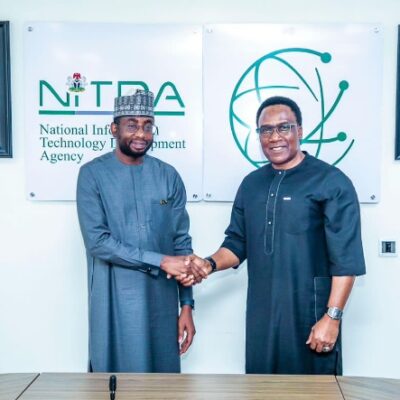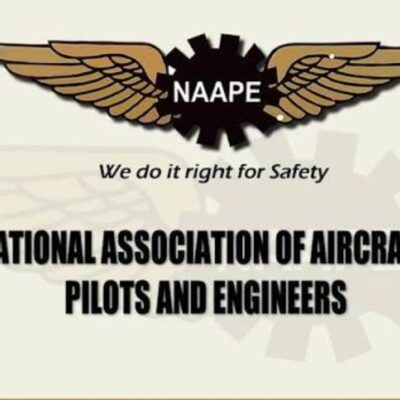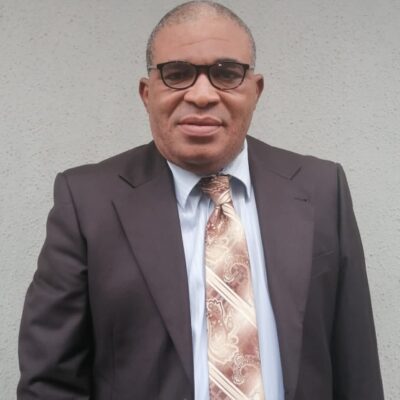
…Advocates Immediate Recruitment To Avert Service Disruptions
The Nigerian Air Traffic Controllers Association (NATCA) has raised the alarm over the critical shortage of Air Traffic Controllers (ATCOs) in the country, calling for immediate recruitment and training to mitigate fatigue and enhance airspace safety and efficiency.
Speaking at the Murtala Muhammed International Airport, Lagos, NATCA President, Mr. Amos Edino, emphasised that the severe shortfall of ATCOs has led to excessive workloads, extended duty hours, and heightened stress levels, negatively impacting both performance and the well-being of controllers.
Edino revealed that due to manpower constraints, ATCOs are frequently forced to work beyond the standard two-hour shift per session, with some enduring continuous shifts of four to five hours.
He further expressed concerns over the proliferation of new airports by various state governments without corresponding staffing plans, exacerbating the shortage of licensed ATCOs.
The Nigerian College of Aviation Technology (NCAT), Zaria, which is responsible for ATCO training, is currently struggling with capacity limitations.
While the government recently initiated the recruitment of over 200 cadets, Edino criticized the flawed selection process, citing inadequate assessment of qualification requirements.
Recognising these challenges, the Nigerian Airspace Management Agency (NAMA) has sought intervention from the Nigerian Air Force ATS Training School in Kaduna to supplement training efforts.
Despite their critical role in ensuring safe and efficient air traffic flow, Nigerian ATCOs remain the least paid in Africa.
Edino urged the government to revise the salary structure in line with international best practices to enhance motivation and retain skilled professionals.
He also highlighted the unsustainable practice of rehiring retired ATCOs on contract, advocating instead for an extension of the retirement age from 60 to 65 years.
This, he noted, would allow for knowledge transfer, mentorship, and continuity within the profession, similar to existing policies for health workers and teachers.
He further called for improved retirement benefits to discourage post-retirement contract engagements.
Edino raised serious concerns over occupational health risks, particularly prolonged exposure to radiation in radar facilities, which has led to cases of cancer among ATCOs. He urged the government to implement a comprehensive health care package to address these challenges.
He also lamented the deplorable working conditions in many control towers and operational rooms, citing non-functional elevators that force controllers, including female and pregnant ATCOs, to climb over 250 steps daily to reach their workstations, leading to cases of miscarriages.
Additionally, many ATC environments are equipped with outdated systems, undermining efficiency and safety.
In the area of Air Traffic Management (ATM), NATCA stressed the urgency of upgrading the Total Radar Coverage of Nigeria (TRACON) system, which has exceeded its intended operational lifespan. Designed for 10 years, the system is now nearly 20 years old, compromising its reliability, availability, and integrity.
Edino further highlighted the long-standing inefficiencies in Nigeria’s air traffic communication system, calling for modernization to ensure safe and seamless operations.
He also advocated for enhanced facilities and equipment to improve coordination with adjacent Flight Information Regions (FIRs) and other ATC units.
Despite these challenges, NATCA acknowledged the proactive measures taken by the Nigerian Airspace Management Agency (NAMA) under the leadership of Managing Director Engr. Ahmed Umar Farouk. Edino commended the administration’s commitment to resolving these long-standing issues and expressed NATCA’s willingness to collaborate in achieving a safer and more efficient air traffic management system.
“This is a defining moment for the agency. If NAMA successfully resolves these persistent challenges, it will leave a lasting legacy, ensuring that Nigeria’s ATC system ranks among the best globally,” Edino stated.
Olapeju is a journalist and aviation reporter.





